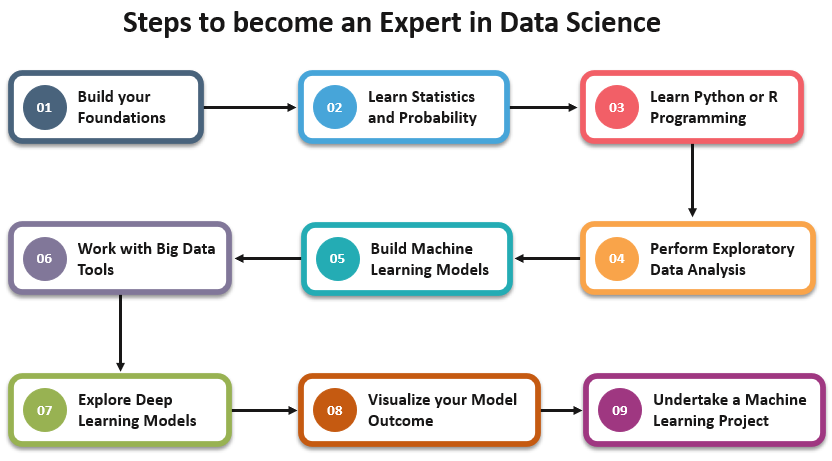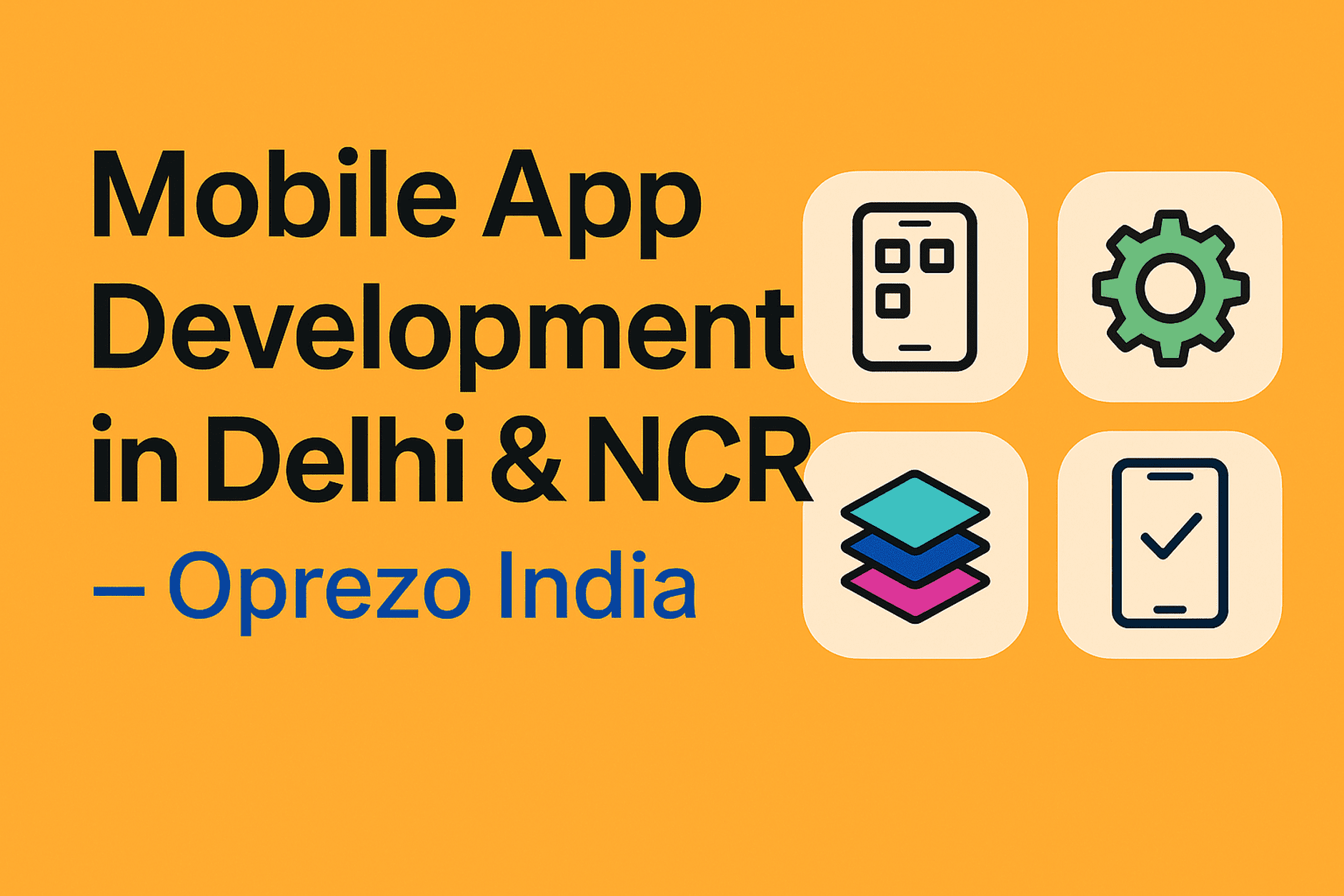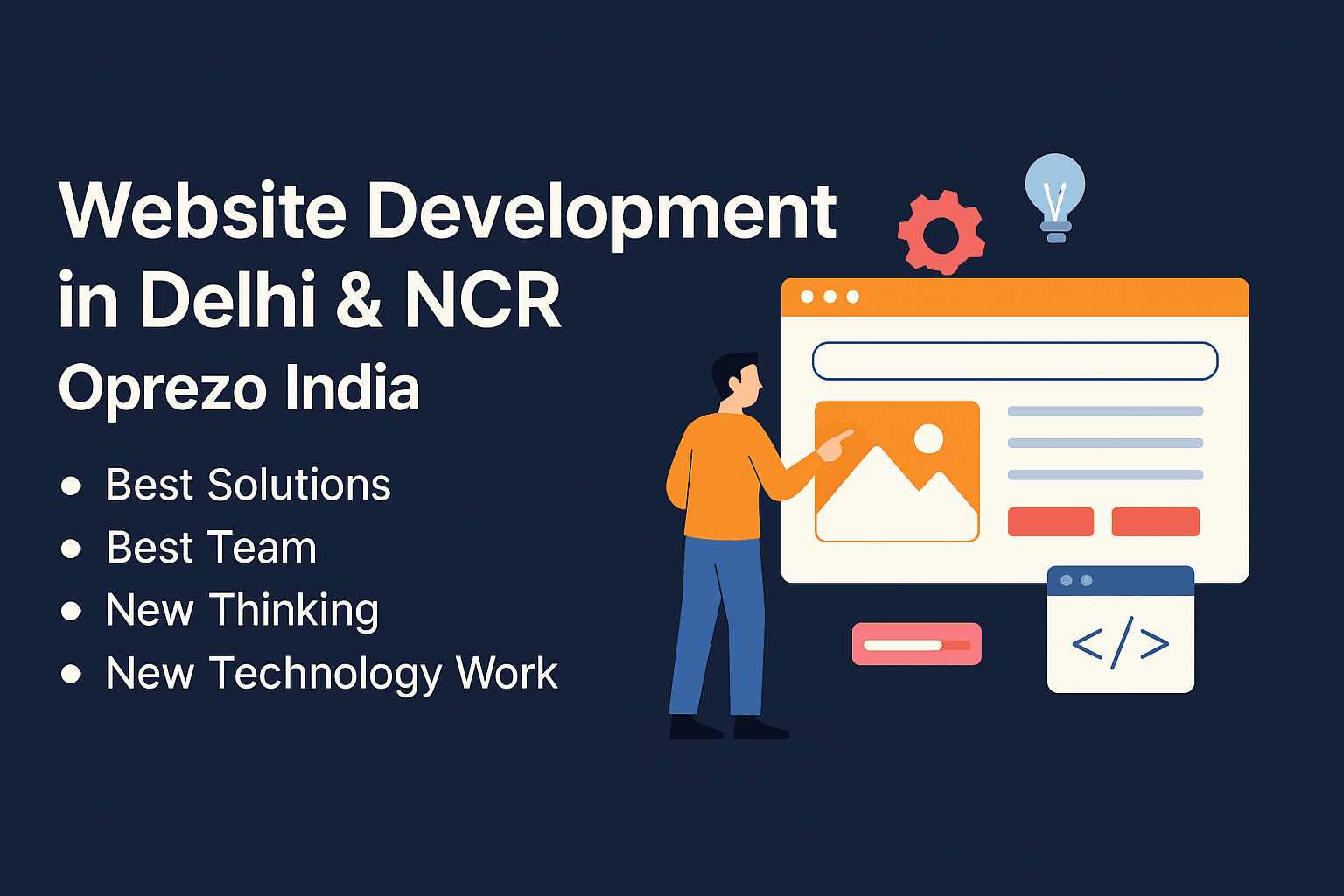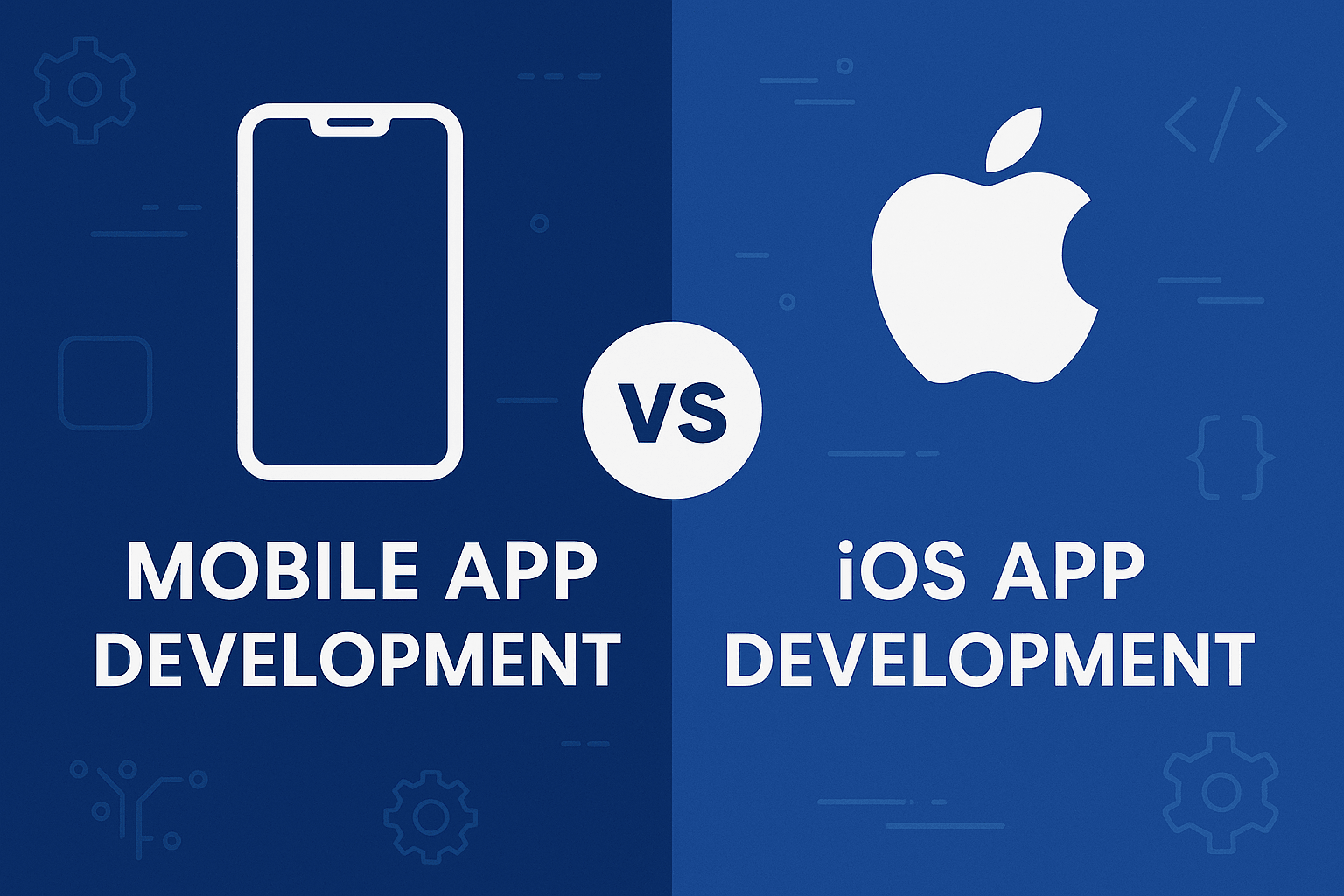
How to Become Data Scientist in India: Your Ultimate Guide
In the era of big data, the role of a Data Scientist has become one of the most coveted and lucrative careers in the tech industry. Data Scientists are the architects behind the scenes who analyze and interpret complex data to drive business decisions and innovations. In India, where the tech industry is rapidly expanding, the demand for skilled Data Scientists is soaring. If you're interested in this exciting and dynamic field, this comprehensive guide will walk you through everything you need to know about How to Become Data Scientist in India.
Why Pursue a Career as a Data Scientist in India?
Before we dive into the steps to becoming a Data Scientist, let’s explore why this career path is so appealing, particularly in India.
High Demand and Competitive Salaries: India is becoming a global hub for data science and analytics. With more companies recognizing the value of data-driven decision-making, the demand for Data Scientists has surged, leading to attractive salary packages and career growth opportunities.
Diverse Opportunities: Data Scientists are needed across various industries, from IT and finance to healthcare and e-commerce. This versatility allows professionals to explore different sectors and apply their skills to a wide range of problems.
Impactful Work: As a Data Scientist, your work can have a significant impact on business strategies and operations. By interpreting data and providing actionable insights, you play a key role in driving innovation and efficiency.
Continous Learning: Data science is a field that is constantly evolving with new tools, techniques, and technologies. For those who love learning and staying updated with the latest trends, data science offers a fulfilling and intellectually stimulating career.
Educational Pathways to Becoming a Data Scientist in India
The journey to becoming a Data Scientist typically begins with a strong educational foundation. While there isn’t a single defined path, certain educational qualifications can significantly boost your chances of success in this field.
1. Bachelor’s Degree
A bachelor’s degree in a related field is often the first step toward becoming a Data Scientist. Degrees in Computer Science, Statistics, Mathematics, or Engineering are particularly relevant as they provide a solid foundation in the analytical and technical skills needed for data science.
Computer Science: Offers a strong background in programming, algorithms, and data structures.
Statistics/Mathematics: Provides expertise in statistical methods, probability, and mathematical modeling, all of which are crucial in data analysis.
Engineering: Equips you with problem-solving skills and a strong analytical mindset.
2. Master’s Degree or Postgraduate Diploma
While a bachelor’s degree is essential, pursuing a master’s degree or postgraduate diploma in Data Science, Artificial Intelligence, or Machine Learning can further enhance your qualifications. These programs delve deeper into data analysis, machine learning algorithms, and advanced statistical methods.
MSc in Data Science: Focuses on data management, machine learning, and big data technologies.
MBA with Analytics Specialization: Combines business acumen with data analysis, ideal for those looking to apply data science in business settings.
Postgraduate Diploma in Data Science: Offers specialized training in data science tools and techniques, often with a focus on practical applications.
3. Online Courses and Certifications
In addition to formal education, online courses and certifications can be a great way to acquire specific skills or knowledge in areas like machine learning, big data, and data visualization.
Coursera, edX, Udacity: These platforms offer comprehensive courses in data science and related fields. Many of these courses are taught by industry experts and include hands-on projects.
Certification Programs: Certifications from recognized institutions or companies can add value to your resume and demonstrate your expertise to potential employers.
Developing Essential Data Science Skills
Beyond academic qualifications, aspiring Data Scientists need to develop a robust set of technical and soft skills. Here are some of the key skills you should focus on:
1. Programming Skills
Proficiency in programming is fundamental for any Data Scientist. The most commonly used programming languages in data science are Python and R.
Python: Known for its simplicity and versatility, Python is widely used in data science for data manipulation, analysis, and machine learning.
R: R is particularly strong in statistical analysis and is often used in academic and research settings.
2. Statistical and Mathematical Knowledge
A deep understanding of statistics and mathematics is crucial for analyzing data and building predictive models. Key concepts include:
Probability and Statistics: Understanding distributions, hypothesis testing, and inferential statistics.
Linear Algebra and Calculus: Essential for machine learning algorithms and data modeling.
Optimization Techniques: Used in machine learning to fine-tune models and improve accuracy.
3. Data Manipulation and Analysis
Data Scientists must be adept at manipulating and analyzing large datasets. Skills in SQL (Structured Query Language) are essential for querying databases and working with relational data.
SQL: The standard language for interacting with databases. It’s essential for extracting and managing data from databases.
Data Wrangling: The process of cleaning and transforming raw data into a usable format.
4. Machine Learning
Machine learning is at the heart of data science. Data Scientists use machine learning algorithms to build models that can predict outcomes and identify patterns in data.
Supervised Learning: Algorithms like linear regression, decision trees, and support vector machines.
Unsupervised Learning: Techniques like clustering and dimensionality reduction.
Deep Learning: Advanced neural networks for tasks like image and speech recognition.
5. Data Visualization
The ability to visualize data effectively is critical for communicating insights to stakeholders. Familiarize yourself with tools like:
Tableau: A popular data visualization tool that allows you to create interactive dashboards.
Matplotlib and Seaborn (Python Libraries): Used for creating detailed and customized visualizations in Python.
Power BI: Another powerful tool for creating interactive visual reports.
6. Big Data Technologies
With the growing volume of data, knowledge of big data technologies is becoming increasingly important. Understanding tools like Hadoop and Spark can be advantageous.
Hadoop: An open-source framework that allows for the distributed processing of large datasets.
Spark: A fast and general engine for large-scale data processing.
7. Soft Skills
While technical skills are crucial, soft skills are equally important for a successful career in data science.
Problem-Solving: The ability to approach complex problems logically and creatively.
Communication: The ability to explain complex technical concepts to non-technical stakeholders.
Curiosity and Learning Mindset: A desire to continually learn and adapt to new challenges and technologies.
Gaining Practical Experience in Data Science
In the competitive field of data science, practical experience is invaluable. Here are some ways to gain hands-on experience:
1. Internships
Internships provide an opportunity to apply your knowledge in real-world settings and learn from experienced professionals. Many companies in India offer internships in data science, often leading to full-time job offers.
2. Personal Projects
Working on personal projects is an excellent way to build your portfolio. These projects can involve analyzing publicly available datasets or developing your own data-driven solutions to problems.
3. Kaggle Competitions
Kaggle is a popular platform for data science competitions. Participating in these competitions allows you to apply your skills to real-world problems and compare your solutions with those of other data scientists.
4. Freelance Work
Freelancing can also provide valuable experience. Platforms like Upwork and Freelancer offer opportunities to work on data science projects for clients around the world.
Building a Strong Portfolio
A well-curated portfolio is essential when applying for data science roles. Your portfolio should showcase your skills, experience, and the projects you’ve worked on.
What to Include in Your Portfolio
Project Summaries: Brief descriptions of the projects you’ve worked on, including the problem statement, approach, tools used, and results.
Code Repositories: Links to your GitHub repositories where you’ve shared the code for your projects. Ensure your code is well-documented and clean.
Data Visualizations: Examples of dashboards or visualizations you’ve created using tools like Tableau or Python libraries.
Blog Posts: Writing about your projects or data science topics on platforms like Medium can demonstrate your expertise and thought leadership.
Finding Data Science Jobs in India
Once you have the necessary skills and experience, it’s time to start applying for jobs. Here’s how to navigate the job market in India:
1. Job Portals
Use job portals like Naukri, LinkedIn, and Indeed to search for data science job openings. Make sure your profile is complete and optimized with relevant keywords.
2. Networking
Networking is a powerful tool in the job search process. Attend industry events, join data science communities, and connect with professionals on LinkedIn.
3. Company Websites
Many companies post job openings directly on their websites. Regularly check the careers pages of companies you’re interested in.
4. Recruitment Agencies
Consider working with recruitment agencies that specialize in tech roles. They can help match you with suitable opportunities and provide insights into the job market.
Preparing for Data Science Interviews
Data science interviews can be challenging, involving a mix of technical assessments, case studies, and behavioral questions. Here’s how to prepare:
1. Technical Assessments
Brush up on your programming skills, particularly in Python and SQL. Practice solving problems on platforms like LeetCode and HackerRank.
2. Case Studies
Case studies are common in data science interviews. These typically involve analyzing a dataset and presenting your findings. Practice working through case studies and clearly communicating your thought process.
3. Behavioral Questions
Be prepared to discuss your past projects and experiences. Focus on your problem-solving approach, teamwork, and ability to overcome challenges.
Career Growth and Advancement
Data science offers various paths for career growth, from technical roles to leadership positions. As you gain experience, you may choose to specialize in areas like machine learning, artificial intelligence, or big data. Alternatively, you could move into managerial roles, leading data science teams or heading data-driven initiatives.
Specializations in Data Science
Machine Learning Engineer: Focuses on designing and implementing machine learning models.
Data Engineer: Specializes in building and maintaining data pipelines and infrastructure.
AI Researcher: Works on cutting-edge AI technologies and research.
Data Science Manager: Leads data science teams and manages projects.
Continuing Education and Lifelong Learning
The field of data science is constantly evolving, making continuous learning essential. Stay updated with the latest tools, techniques, and trends by taking advanced courses, attending workshops, and participating in conferences.
FAQs About Becoming a Data Scientist in India
Q1: Do I need a degree to become a Data Scientist in India?
A degree in a related field (such as Computer Science, Statistics, or Mathematics) is highly beneficial, but it’s not always mandatory. Many successful Data Scientists have transitioned into the field through online courses, certifications, and practical experience.
Q2: How long does it take to become a Data Scientist in India?
The time it takes to become a Data Scientist varies depending on your background and learning path. On average, it can take anywhere from 2 to 5 years, including obtaining relevant education, gaining experience, and developing necessary skills.
Q3: Is coding necessary for data science?
Yes, coding is essential in data science. Proficiency in programming languages like Python or R is crucial for data manipulation, analysis, and building machine learning models.
Q4: What are the best online courses for learning data science?
Some of the best online platforms for learning data science include Coursera, edX, Udacity, and DataCamp. These platforms offer courses taught by industry experts and often include hands-on projects.
Q5: Can I become a Data Scientist without a background in Computer Science?
Yes, it’s possible to become a Data Scientist without a Computer Science background. However, you’ll need to acquire programming skills and a strong understanding of statistics and data analysis through education or self-study.
Q6: What is the average salary of a Data Scientist in India?
The average salary of a Data Scientist in India varies based on experience, location, and industry. As of 2024, entry-level Data Scientists can expect to earn between ₹6 to ₹10 lakhs per annum, with the potential for significant increases as they gain experience.
Q7: What industries in India are hiring Data Scientists?
Data Scientists are in demand across various industries, including IT, finance, healthcare, e-commerce, telecommunications, and manufacturing. Companies in these sectors are increasingly relying on data-driven strategies to remain competitive.
Q8: How can I stay updated with the latest trends in data science?
To stay updated, follow data science blogs, attend webinars and conferences, join online communities, and participate in workshops. Continuous learning is key to success in this rapidly evolving field.
Conclusion
Becoming a Data Scientist in India is an exciting and rewarding journey that offers numerous opportunities for growth and innovation. With the right educational background, skills, and practical experience, you can build a successful career in this dynamic field. Whether you're just starting or looking to advance your career, remember that continuous learning and adaptability are essential in the ever-changing world of data science. By following the steps outlined in this guide, you’ll be well on your way to achieving your goal of becoming a Data Scientist in India.
 What the Yashobhoomi: Meaning, Purpose and Why It Matters
What the Yashobhoomi: Meaning, Purpose and Why It Matters
 Mobile App Development in Delhi & NCR | Best App Developers – Oprezo India
Mobile App Development in Delhi & NCR | Best App Developers – Oprezo India
 Website Development in Delhi & NCR | Best Web Development Company 2025
Website Development in Delhi & NCR | Best Web Development Company 2025
 Web Development in Delhi & Delhi NCR | Oprezo India — Top Web Developers 2025
Web Development in Delhi & Delhi NCR | Oprezo India — Top Web Developers 2025
 Mobile App Development vs iOS App Development | Oprezo India 2025
Mobile App Development vs iOS App Development | Oprezo India 2025